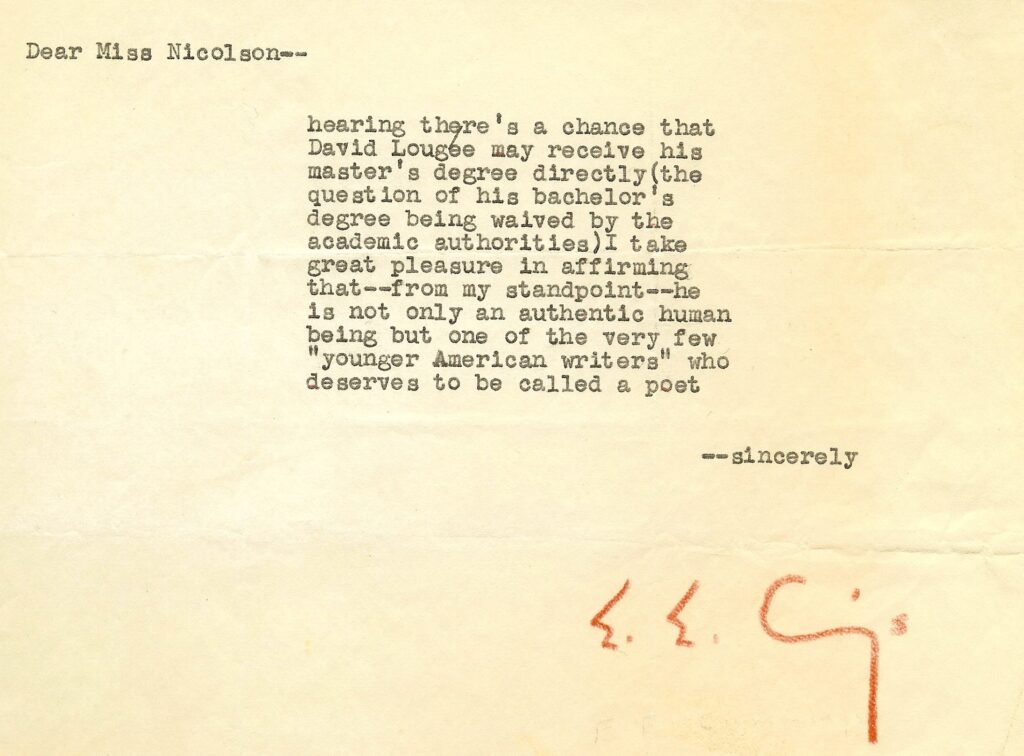one of the very few
’younger American writers’ who
deserves to be called a poet…
CUMMINGS, E(DWARD) E(STLIN). (1894-1962). American poet. Uncommon Typed Letter Signed, “E.E. Cummings”, in red crayon, written in the style of his poetry. One page, quarto. “4 Patchin Place, New York City, 11”, May 16, 1955. Very fine condition. To “Dear Miss Nicolson”. Cummings writes:
“hearing there’s a chance that
David Lougee may receive his
master’s degree directly (the
question of his bachelor’s
degree being waived by the
academic authorities) I take
great pleasure in affirming
that—from my standpoint—he
is not only an authentic human
being but one of the very few
’younger American writers’ who
deserves to be called a poet
—sincerely
E.E. Cummings”
His letters are unexplainably scarce, and this letter represents a fine opportunity to acquire one.
$1500.00
Edward Estlin (E.E.) Cummings was born in Cambridge, Massachusetts. He attended the Cambridge Latin High School, where he studied Latin and Greek. Cummings earned both his BA and MA from Harvard, and his earliest poems were published in Eight Harvard Poets (1917). As one of the most innovative poets of his time, Cummings experimented with poetic form and language to create a distinct personal style. A typical Cummings poem is spare and precise, employing a few key words eccentrically placed on the page. Some of these words were invented by Cummings, often by combining two common words into a new synthesis. He also revised grammatical and linguistic rules to suit his own purposes, using such words as “if,” “am,” and “because” as nouns, for example, or assigning his own private meanings to words. Despite their nontraditional form, Cummings’ poems came to be popular with many readers. “No one else,” Randall Jarrell claimed, “has ever made avant-garde, experimental poems so attractive to the general and the special reader.” By the time of his death in 1962 Cummings held a prominent position in 20th-century poetry. John Logan in Modern American Poetry: Essays in Criticism called him “one of the greatest lyric poets in our language.” Stanley Edgar Hyman wrote in Standards: A Chronicle of Books for Our Time: “Cummings has written at least a dozen poems that seem to me matchless. Three are among the great love poems of our time or any time.” [https://www.poetryfoundation.org/poets/e-e-cummings]

